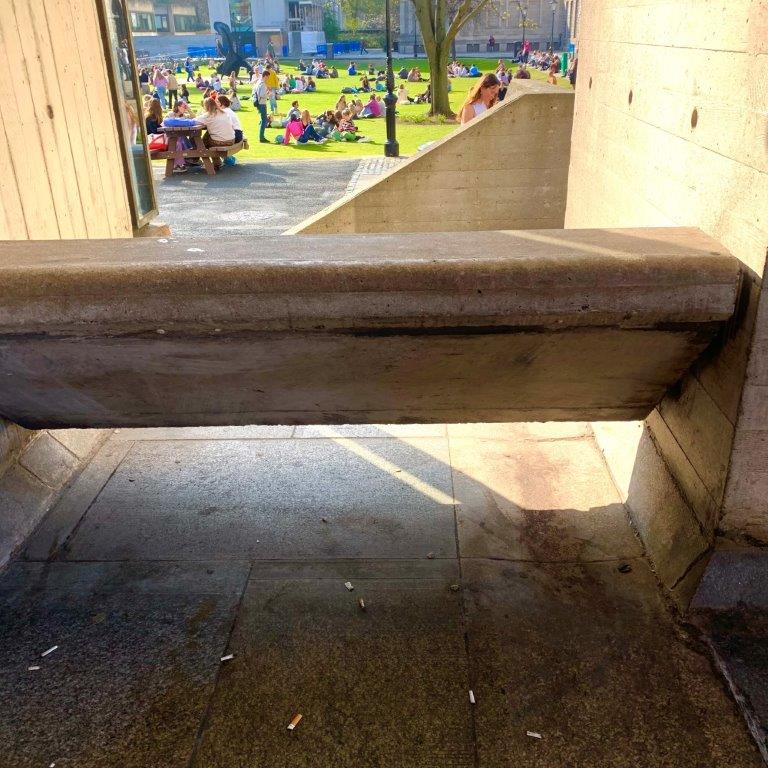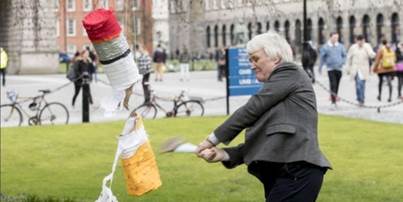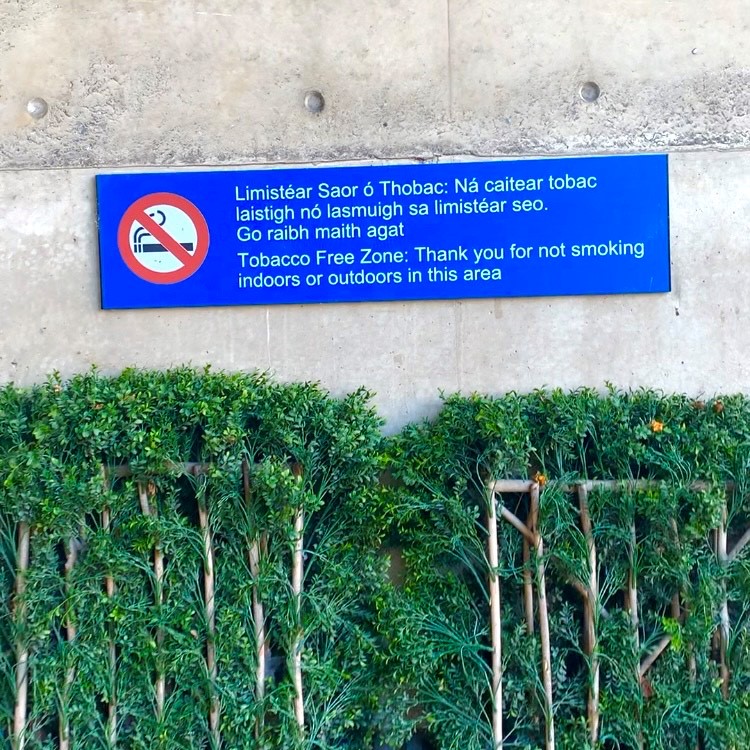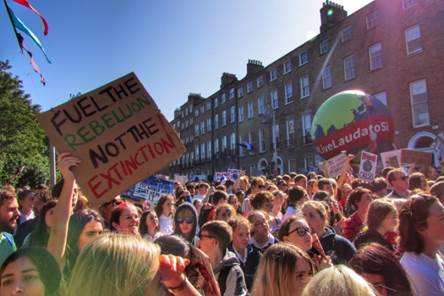Quitting smoking is crucial for students taking positive climate action
By Kathryn Edgar, 2nd year medical students as part of the #TCDMedStudentInitiative on Healthy Trinity Instagram
Single use plastic
If we young people do not take some control over the destruction of our environment, then our generation and the ones to come will pay heavily for the environmental damage being done to our planet today.
One of the substantial changes we have seen in recent years, and something that each of us can contribute to, is the reduction of plastic waste. Plastic is responsible for millions of animals being killed each year. National Geographic warns us that over 700 species including endangered ones have been affected by eating plastic. There have been moves by the EU to reduce plastic waste. One of the major changes has been the introduction of a ban of single use plastics; straws, cups and cutlery are all banned by the EU since 2021. However, there is a single use plastic which continues to be legal and that is the plastic filters found in cigarettes. It is ironic that single use plastic is still permitted in a product which is widely known to have such a devastating impact on a smoker’s health. What smokers may not know is the hugely damaging impact these filters have on our environment.
Cigarette filters damage the environment
Cigarette filters are even more damaging to the environment than other single use plastics. This is because they are made of cellulose acetate and so they dump not only plastic but also nicotine, heavy metals such as arsenic and other chemicals. These toxic substances leach into our soil, rivers and seas poisoning animals and causing irreparable damage to marine life.
And this is not a small scale problem. The World Health Organisation tells us that the tobacco industry manufactures six trillion cigarettes each year. This means that there are over 766 million kilograms of toxic waste per annum from the discarded cigarettes. This makes cigarette butts the most discarded waste item worldwide! It can take each cigarette filter between 18 months and 10 years to decompose depending on the environment they are disposed in and during this time this waste is creating environmental devastation to our ecosystems.
Students making a change…
Students at an American University conducted a clean-up campaign of cigarette butts throughout campus and collected over 8000 discarded butts in an hour. What about our campus? Are we students taking responsibility for the devastating impact of our actions on the environment? What can we do to stop this global environmental disaster? We have to take some action. We cannot stand by idly knowing the irreparable damage being caused by these cigarette filters.
Well, the first thing would be to stop smoking. Not only will that improve bad health outcomes for smokers but it would go some way to reducing the disastrous impact of cigarette waste on our environment. Next time you want your nicotine fix, think about what you are doing to the planet and the animals who are being killed by this toxic waste.
We too could organise a clean-up campaign around our campus ensuring that butts are not discarded to leach poisonous toxins into the soil. 
We could raise awareness in our college and throughout society about the damage that is being caused by this environmental waste.
We could campaign for action to be taken by the government to not only warn on cigarette packets about the impact of this plastic waste on the environment but to ban the single use plastics used by cigarette manufacturers.
We must act now for the sake of our future, for the sake of the animals who share this planet and for the sake of our future earth.
This video suggests alternatives to smoking breaks that are better for the planet.
References
1. Parker, L. (June 2019). The world's plastic pollution crisis explained. National Geographic. https://www.nationalgeographic.com/environment/article/plastic-pollution
2. BMJ (2019) https://www.bmj.com/content/367/bmj.l5890
3.
National Geographic (2019) https://www.nationalgeographic.com/environment/article/cigarettes-story-of-plastic)
4. FCTC (2022) https://fctc.who.int/newsroom/news/item/01-02-2022-unep-secretariat-of-the-who-fctc-partner-to-combat-microplastics-in-cigarettes
5.
https://theplanetvoice.com/cigarette-butt-the-largest-environmental-threatBased

